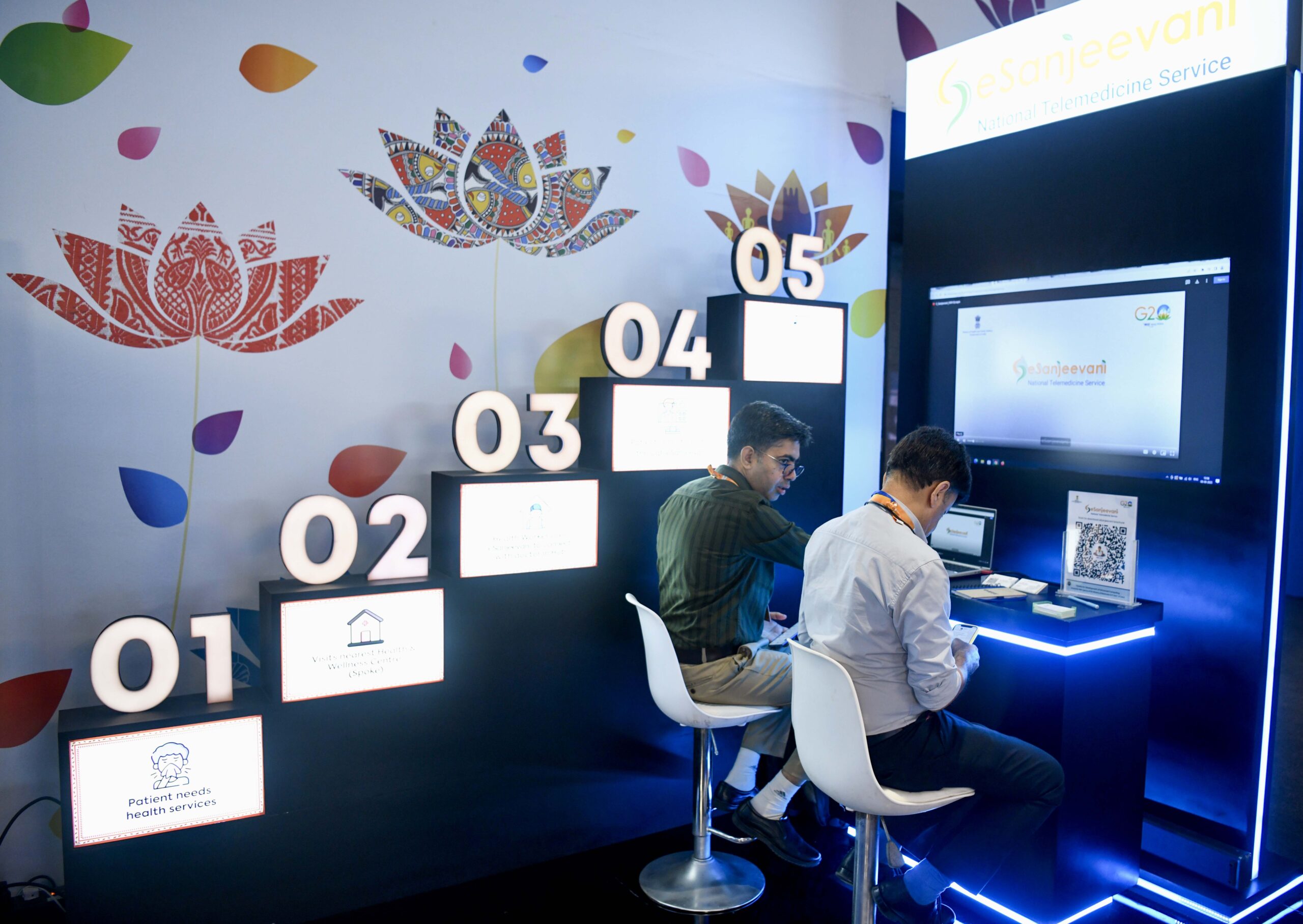NEW DELHI
India’s presidency of the G20 on Saturday spearheaded, what may be seen as, the globalisation of Prime Minister’s clarion call for “Sabka Saath, Sabka Vikas” with the adoption of a roadmap that envisages pursuit of development models that implement and accelerate robust, sustainable, balanced and inclusive growth and transitions globally, making Africa a partner in this strategic progress as a member of an expanded club of 20 countries.
The G20’s New Delhi Leaders’ Declaration underlines the imperative of stronger G20 cooperation in the context of stubbornly persisting headwinds to global economic growth and stability, reversal of the gains in the 2030 agenda and its sustainable development goals (SDGs due to years of cascading challenges and crises, increasing global greenhouse gas (GHG) emissions and climate change, rising commodity prices and galloping cost of food and energy.
The charter adopted by the G20 has a strong focus to promote resilient growth by urgently and effectively addressing debt vulnerabilities in developing countries. With global economic growth well below its long-run average and uneven, outlook and notable tightening in global financial conditions which could worsen debt vulnerabilities, the G20 strategy goes beyond just reaffirming the need for well-calibrated monetary, financial and structural policies to promote growth and expands to an intent to use macroprudential policies, where required, to safeguard against downside risks, prioritising temporary and targeted fiscal measures to protect the poor and the most vulnerable, while maintaining medium-term fiscal sustainability.
One course of action in this regard which finds endorsement by the G20 Roadmap is working to deliver better, bigger and more effective Multilateral Development Banks (MDBs) by enhancing operating models, improving responsiveness and accessibility, and substantially increasing financing capacity to maximise development impact. The G20 declaration makes a case for stronger MDBs which will be important to our efforts to mobilize financing from all sources for a quantum jump from billions to trillions of dollars for development. The G20 estimates that initial CAF measures, including those under implementation and consideration, could potentially yield additional lending headroom of approximately USD 200 billion over the next decade, as estimated in the G20 CAF roadmap.
Calling for implementing the recommendations of the G20 Independent Review of MDBs Capital Adequacy Frameworks (CAFs), the G20 has sought its ambitious implementation, within MDBs’ own governance frameworks while safeguarding their long-term financial sustainability, robust credit ratings and preferred creditor status. We also call for a regular review of the progress of implementation on a rolling basis including through engaging with MDBs, subject experts and shareholders. The G20 notes that leveraging expertise of Multilateral Development Banks to mobilise investments can alleviate debt distress through efforts to devise pipelines of investible projects in developing countries by MDBs. One such project area is climate change and leveraging much-needed private finance through blended financial instruments, mechanisms and risk-sharing facilities to address both adaptation and mitigation efforts in a balanced manner for reaching ambitious Nationally Determined Contributions (NDCs), carbon neutrality and net-zero. The Sustainable Finance Working Group (SFWG) recommendations have called for scaling up blended finance and risk-sharing facilities, including the enhanced role of MDBs in mobilizing climate finance.
To push this, the G20 will undertake work to facilitate access to multilateral climate funds and enhance their leverage and ability to mobilize private capital. The G20 declaration notes the need for USD 5.8-5.9 trillion in the pre-2030 period for developing countries, in particular for implementing their NDCs, as well as the need of USD 4 trillion per year for clean energy technologies by 2030 to reach net zero emissions by 2050. Developed countries had made a commitment in 2010 to the goal of mobilizing jointly USD 100 billion climate finance per year by 2020, and annually through 2025, to address the needs of the developing countries. The G20 developed country contributors expect this goal to be met for the first time in 2023.
An important takeaway of the G20 declaration is the resolve to improve access to digital services and digital public infrastructure (DPIs) as well as leverage digital transformation opportunities to boost sustainable and inclusive growth. This will get a boost with the G20 welcoming the 2023 update to leaders on progress towards the G20 remittance target and endorsing the regulatory toolkit for enhanced digital financial inclusion of Micro, Small and Medium Enterprises (MSMEs).
Noting the significant role of DPIs in helping to advance financial inclusion in support of inclusive growth and sustainable development, the Delhi declaration has endorsed the voluntary and non- binding G20 policy recommendations for advancing financial inclusion and productivity gains through DPIs.

